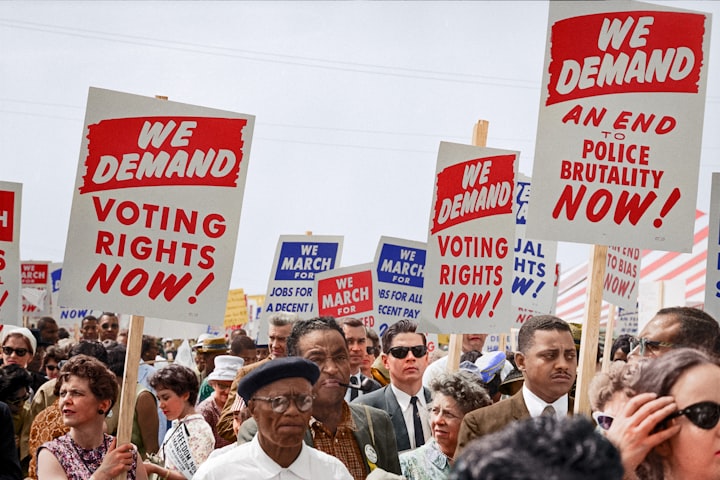What is an election, and why is it important?
"Understanding the Importance of Elections: A Guide to the Democratic Process"

An election is a procedure through which the people of a nation, state, or other political entity select their leaders and representatives by casting ballots. Elections can be held at all levels of government, including the federal, state, and local ones, and they can be used to choose representatives for a range of posts, including president, governor, mayor, and members of Congress or parliament.
Elections typically involve a number of candidates who campaign for the support of voters, and voters cast their ballots for the candidate of their choice. The candidate who receives the most votes is typically declared the winner of the election. In some cases, a candidate must receive a certain percentage of the vote (such as a majority) in order to be declared the winner.
Elections can take place in a variety of ways, such as direct elections in which voters choose a candidate directly or indirect elections in which voters choose representatives who then cast ballots on their behalf. Some nations combine both techniques, such as holding separate elections for members of parliament in addition to general elections where voters choose a president or prime minister.
The main purpose of an election is to give citizens the opportunity to choose their leaders and representatives through a fair and democratic process. Through elections, citizens can decide who will govern them and make decisions on their behalf. This is an essential aspect of democracy, as it ensures that those in power are chosen by the people, rather than being appointed by a small elite or coming to power through non-democratic means.
In addition to choosing leaders, elections also serve several other important purposes:
Representation: Elections allow citizens to choose leaders who reflect their views and represent their interests. By voting, citizens can help ensure that their voices are heard and their needs are taken into account in government decision-making.
Holding elected officials accountable: Elections provide a mechanism for citizens to hold their leaders accountable for their actions. If citizens are unhappy with the performance of their elected officials, they can vote them out of office and choose new leaders who they believe will do a better job.
Peaceful transfer of power: Elections are a peaceful way for power to be transferred from one leader or government to the next. This is important for maintaining stability and preventing conflict within a society.
Facilitating change: Elections can facilitate change within a society, whether it be change in policies, laws or leadership.
Voter education and civic participation: Elections can also serve as a way to educate citizens about the issues facing their country and to encourage greater civic participation in government.
There are several different types of elections, each with its own purpose and set of rules. Some of the most common types include:
- General elections: These are elections that are held to select leaders or representatives at the national, state, or local level. These are the most common type of election and are typically held at regular intervals, such as every four years for a presidential election or every two years for elections to the U.S. Congress. In General elections all eligible citizens can participate, and the winner is decided by the majority of the votes.
- Primary elections: These are elections that are held within a political party to choose the party's nominee for an upcoming general election. For example, in the U.S., each party holds primary elections to choose their nominee for president. Primary elections are typically open to registered members of the party, and voters choose among the different candidates running for the party's nomination. Depending on the country the primary elections may be closed or open and can be done with different voting systems such as "caucus" or "primary".
- Special elections: These are elections that are held outside of the regular election schedule and are usually held to fill a vacancy in an elected office, such as a seat in the U.S. Congress that becomes open when a representative resigns or dies. Special elections can also be held for special purpose such as to approve or disapprove a specific policy or change in law.
There are some other types of elections such as run-off elections, recall elections, and referendum. Each type of election has its own specific rules and regulations, and the process can vary depending on the country or political jurisdiction.
The electoral process can be complex and can vary depending on the country or political jurisdiction, but it generally involves several key steps:
- The electoral process: This begins with the setting of a date for the election, which is announced well in advance. This is followed by the establishment of rules and regulations for the conduct of the election, including how to register to vote, how to become a candidate, and how the votes will be counted.
- Voter registration: In order to vote, citizens must typically register beforehand. This process can involve filling out a form, providing proof of identity and residency, and meeting certain eligibility requirements (such as age and citizenship). Deadlines for voter registration are usually set well in advance of the election.
- Candidates: Individuals wishing to run for office must also meet certain eligibility requirements and must typically file paperwork, including a nomination form, by a certain deadline. In some cases, they may also be required to pay a fee or collect a certain number of signatures to be placed on the ballot.
- Ballot Measures: In some cases, elections may also include ballot measures or propositions, which are questions put to voters for a direct decision such as to approve or disapprove a specific policy or change in law.
- Voter turnout: On Election Day, voters typically go to designated polling stations to cast their ballots. Voter turnout, which is the percentage of eligible voters who actually vote, can vary widely depending on the country and the specific election.
- Counting votes: After the polls close, the votes are counted by election officials. This process can vary depending on the country and the voting system used.
- Certification and Announcement of the results: Once the votes have been counted, the results are typically certified by election officials to ensure the accuracy. The results are then announced officially, and the candidate or party with the most votes is declared the winner.
In some cases, the process of contesting the results or challenging the outcome of an election may also occur, usually through the legal system.
In democratic societies, elections are a crucial component since they fulfil a number of vital purposes, such as:
- Representation and democracy: Elections allow citizens to choose leaders who reflect their views and represent their interests. This ensures that those in power are chosen by the people, rather than being appointed by a small elite or coming to power through non-democratic means.
- Holding elected officials accountable: Elections provide a mechanism for citizens to hold their leaders accountable for their actions. If citizens are unhappy with the performance of their elected officials, they can vote them out of office and choose new leaders who they believe will do a better job. This accountability helps to keep leaders responsive to the citizens they represent.
- Ensuring a peaceful transition of power: Elections are a peaceful method of handing over power from one ruler or administration to another. In order to keep society stable and to avoid conflict, this is crucial. Additionally, it grants the right for residents to frequently elect their leaders, preventing the concentration of power in the hands of a select few people or groups.
- Giving citizens a voice in government decisions: Elections provide citizens with a voice in government decisions by allowing them to vote for the leaders and policies that align with their views and interests. This helps to ensure that the government reflects the will of the people.
- Elections can help to bring about change in a society, whether it's through changes in policies, laws, or leadership. It allows citizens to vote for candidates or policies that reflect their values and vision for the future. Citizens can now drive change and progress through their votes rather than through violent or non-democratic means.
In conclusion, elections are an essential component of a democracy because they allow citizens to choose their leaders and hold them accountable for their actions. However, these processes are vulnerable to a variety of challenges, so citizens must be informed and actively participate in the electoral process to ensure its integrity.
About the Creator
Laktish Rouben
By continuing to read my blog geo-politics, you'll gain a better understanding of the forces shaping the world today. My posts provide a unique perspective on the most pressing issues and stay up to date on the latest developments.






Comments
There are no comments for this story
Be the first to respond and start the conversation.